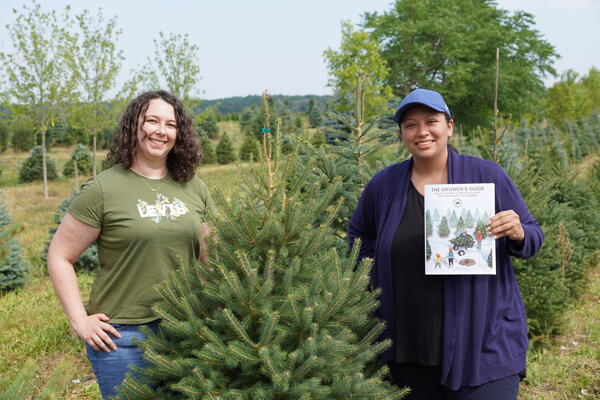
More reporting needed to show progress on Ontario municipal climate and sustainability plans
University of Waterloo researchers will help Canadian municipalities monitor, measure and achieve climate mitigation goals

University of Waterloo researchers will help Canadian municipalities monitor, measure and achieve climate mitigation goals
By Media RelationsWhile sustainability reporting is a widespread practice in the private sector, new research shows that the same cannot be said for Ontario municipalities.
Researchers at the University of Waterloo studied 38 municipalities in Ontario, representing more than two-thirds of the population, and discovered that almost all municipalities publish their sustainability and climate change goals, but under half are formally reporting on their progress.
Municipalities are a key part of the equation for Canada to achieve its ambitious climate action targets, but the significant gap between planning and reporting makes it difficult for the public and stakeholders to stay up to date with performance, whether good or bad.
“Citizens can go online and see the financial performance of a municipality,” said Leah Feor, PhD candidate in the School of Environment, Enterprise and Development. “But they would have to dig around to see how the operations and policies of the municipality are contributing to sustainable development and climate action. It’s not always easy to find.”
The researchers found that sustainability information is most commonly reported through annual reports, while separate sustainability reports are scarce and appear to be decreasing over time. The study further showed that provincial regulation does not guarantee that municipalities will publish Energy Conservation and Demand Management plans and reporting documents on their public websites.
“A regulation isn’t a silver bullet for ensuring municipalities adopt planning and reporting practices,” said Feor. “If we want to see province-wide adoption, then we will need to see more guidance, capacity building, and potentially funding from the top. Otherwise, it will be driven bottom-up, and some municipalities will excel, and others will lag.”
The next phase of this work is in progress under the Municipal Net-Zero Action Research Partnership (N-ZAP) to support Canadian municipalities in monitoring, measuring, and achieving their climate mitigation goals. Feor will interview municipalities across Canada identified as leaders in this space to provide insights for municipalities and other levels of government in Canada seeking to standardize practices, strengthen data, and support the achievement of climate commitments.
The work to support Canadian municipalities in achieving net-zero greenhouse gas emissions goals is the latest in Waterloo’s efforts to promote environmental innovation, solutions and talent and be a leader in sustainability research and education.
The study, Municipal Sustainability and Climate Planning: A Study of 38 Canadian Local Governments’ Plans and Reports, appears in the journal Environments.

(GettyImages/ Rosella De Berti)
Read more
Study reveals changes International Olympic and Paralympic Committees could implement to keep Games viable and safer for athletes

Read more
An ambitious research collaboration with Habitat for Humanity is reimagining home ownership across Waterloo Region and Canada

Read more
Waterloo researchers are helping to make a much-loved holiday tradition more sustainable all year round
The University of Waterloo acknowledges that much of our work takes place on the traditional territory of the Neutral, Anishinaabeg, and Haudenosaunee peoples. Our main campus is situated on the Haldimand Tract, the land granted to the Six Nations that includes six miles on each side of the Grand River. Our active work toward reconciliation takes place across our campuses through research, learning, teaching, and community building, and is co-ordinated within the Office of Indigenous Relations.